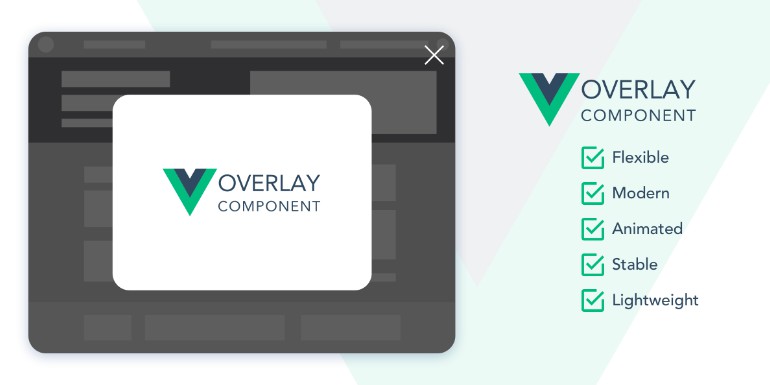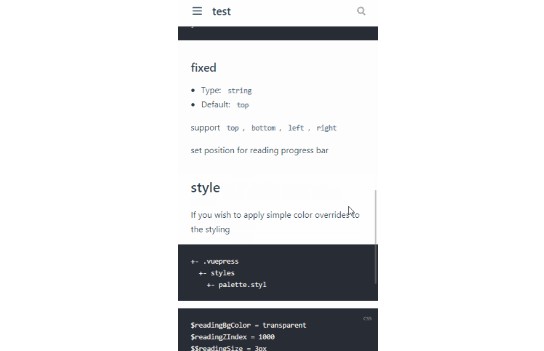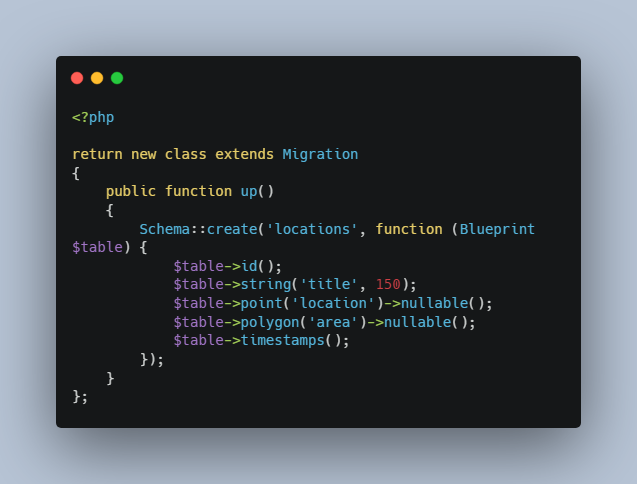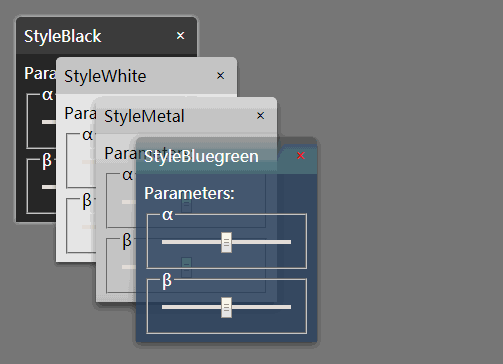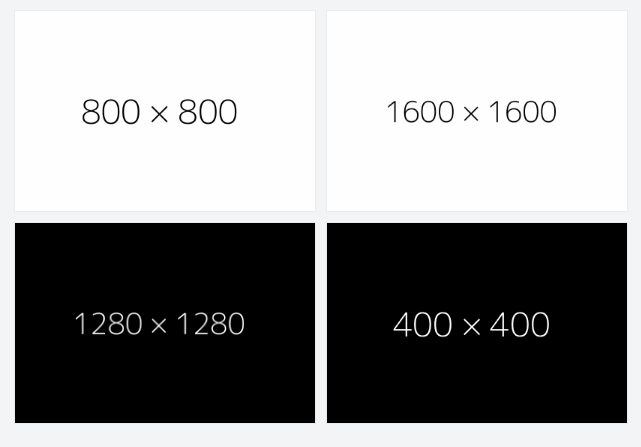unoverlay-vue
Oh, this image is from vuejs-overlay, but he’s really cool and I’m lazy so I stole it (sorry)
中文 | English
A universal overlay (popup) Vue2/Vue3 utils
it can achieve:
- Make Message or Dialog similar to
element-plus/naiveui/vuetifyjs/vant… - Supports two calling methods at the same time (template or js/ts)
- Integrate and customize functions using existing component libraries (such as element-plus)
⚙️ Install
pnpm add unoverlay-vue
# Or Yarn
yarn add unoverlay-vue
Global installation makes all overlay inherit the app context
// main.js
import { createApp } from 'vue'
import unoverlay from 'unoverlay-vue'
import App from './App.vue'
const app = createApp(App)
app.use(unoverlay)
app.mount('#app')
? Usage(Basic)
define overlay component
<!-- overlay.vue -->
<script setup>
import { defineEmits, defineProps } from 'vue'
import { useOverlayMeta } from 'unoverlay-vue'
const props = defineProps({
title: String,
// If you want to use it as a component in template,
// you need to define visible in props
visible: Boolean
})
// Define the events used in the component(optional)
// This allows you to use hints in components
defineEmits(['cancel', 'confirm'])
// Get Overlay information from useOverlayMeta
const { visible, confirm, cancel } = useOverlayMeta({
// Animation duration to avoid premature destruction of components
// Only use component in template and no need to define
animation: 1000
})
</script>
<template>
<div v-if="visible" @click="confirm(`${title}:confirmed`)">
{{ title }}
</div>
</template>
Create a callback, call it in Javascript/Typescript
import { transformOverlay } from 'unoverlay-vue'
import OverlayComponent from './overlay.vue'
// Convert to imperative overlay
const callback = transformOverlay(OverlayComponent)
// Call the component and get the value of confirm
const value = await callback({ title: 'callbackOverlay' })
// value === "callbackOverlay:confirmed"
or use in setup
import { useOverlayCall } from 'unoverlay-vue'
import OverlayComponent from './overlay.vue'
const value = await useOverlayCall(OverlayComponent, {
props: { title: 'useOverlay' }
})
// value === "useOverlay:confirmed"
or use in component
<!-- overlay.vue -->
<script setup>
import OverlayComponent from './overlay.vue'
const visible = ref(false)
const confirm = () => {
// ...
}
const cancel = () => {
// ...
}
</script>
<template>
<overlay-component
v-model:visible="visible"
@confirm="confirm"
@cancel="cancel"
/>
</template>
You can use your imagination boldly!
?️ Customized overlay
Take [email protected](dialog) as an example (of course, you can use other component libraries)
<!-- overlay.vue -->
<script setup>
import { defineEmits, defineProps } from 'vue'
import { useOverlayMeta } from 'unoverlay-vue'
const props = defineProps({
title: String,
})
const { visible, confirm, cancel } = useOverlayMeta({
animation: 1000
})
</script>
<template>
<el-dialog v-model:visible="visible" :title="title" @close="cancel()">
<!-- your content -->
<button @click="confirm(`${title}:confirmed`)" />
</el-dialog>
</template>
import { transformOverlay } from 'unoverlay-vue'
import OverlayComponent from './overlay.vue'
const callback = transformOverlay(OverlayComponent)
const value = await callback({ title: 'myElDialog' })
// value === "myElDialog:confirmed"
⌨️ Typescript
If you want the component to have the correct type declaration when called in the callback,
You need to extract the props into a separate file, a simple case:
export interface OverlayParams {
title?: string
}
export type OverlayResolved = string
Reference props in .vue
<!-- index.vue -->
<script setup>
import { defineEmits, defineProps } from 'vue'
import { useOverlayMeta } from 'unoverlay-vue'
import type { OverlayParams, OverlayResolved } from './props'
const props = defineProps<OverlayParams>()
const { visible, confirm, cancel } = useOverlayMeta<OverlayResolved>({
animation: 1000
})
</script>
<template>
<div v-if="visible" @click="confirm('string')">
{{ title }}
</div>
</template>
Handle in another separate .js
import { transformOverlay } from 'unoverlay-vue'
import OverlayComponent from './overlay.vue'
import type { OverlayParams, OverlayResolved } from './define.ts'
// Convert to imperative overlay
const callback = transformOverlay<OverlayParams, OverlayResolved>(OverlayComponent)
If you have requirements for vue’s props runtime validation, you can define it like this:
import type { ExtractInferTypes } from 'vue'
// define.ts
export const overlayProps = {
title: String
}
export type OverlayParams = ExtractInferTypes<typeof overlayProps>
export type OverlayResolved = string
<!-- index.vue -->
<script setup>
import { defineEmits, defineProps } from 'vue'
import { useOverlayMeta } from 'unoverlay-vue'
import type { OverlayResolved } from './props'
import { overlayProps } from './props'
const props = defineProps(overlayProps)
const { visible, confirm, cancel } = useOverlayMeta<OverlayResolved>({
animation: 1000
})
</script>
<template>
<div v-if="visible" @click="confirm('string')">
{{ title }}
</div>
</template>
App context inheritance
If you globally registered
unoverlay-vue, it will automatically inherit your app context.
import { getCurrentInstance } from 'vue'
import Component from './overlay.vue'
// in your setup method
const { appContext } = getCurrentInstance()!
useOverlayCall(Component, {
props: {},
appContext
})
API descriptions
Type Declarations
interface MountOverlayOptions {
/** The dom node that hangs when rendering */
root?: HTMLElement
/** Used to inherit the current application context */
appContext?: AppContext
}
interface UseOverlayMetaOptions {
/** Animation duration to avoid premature destruction of components */
animation?: number
/** whether to set visible to true immediately */
immediate?: boolean
}
transformOverlay
Used to convert the overlay component to a callable callback
const caller = transformOverlay(Component)
caller({/* props */}, {/* MountOverlayOptions */})
useOverlayMeta
Obtaining overlay information in the overlay component component is the core function of overlay-vue
useOverlayMeta({/* UseOverlayMetaOptions */})
useOverlayCall
Call overlay component directly
useOverlayCall(Component, { props: {/* props */}, /* MountOverlayOptions */ })
return types
interface OverlayMeta {
/** Call resolve, change visible, and destroy when animation ends */
cancel: Function
/** Call reject, change visible, and destroy when animation ends */
confirm: Function
/** Destroy the current instance (immediately, and the call fails), only cancel is called in the template */
vanish: Function
/** Control overlay display and hide */
visible: Ref<boolean>
/** rendered vnode */
vnode?: VNode
}
License
MIT Copyright (c) 2019-PRESENT
